
- Good Stuff -
- 4mins -
- 2,521 views
A Ugandan chemist and entrepreneur creates crystal clear, clean drinking water using waste materials
A Ugandan chemist and entrepreneur has invented a portable eco water filter made from animal bones, cassava peels, and other waste materials, which runs off solar panels and produces perfectly potable water.
Clean water using an Eco Mobile Water Purifier system
The Eco Water Purifier is a digitalised portable eco water purification unit using sustainable, locally sourced materials (which might otherwise be deemed as refuse, such as animal bones, cassava peels, and other waste materials) and devices that are affordable by the local population. Its inventor, Timothy Kayondo, an industrial chemist graduate and serial innovator, says he devised the system to run on solar panels to ensure public facilities like remote schools and clinics would have clean drinking water.
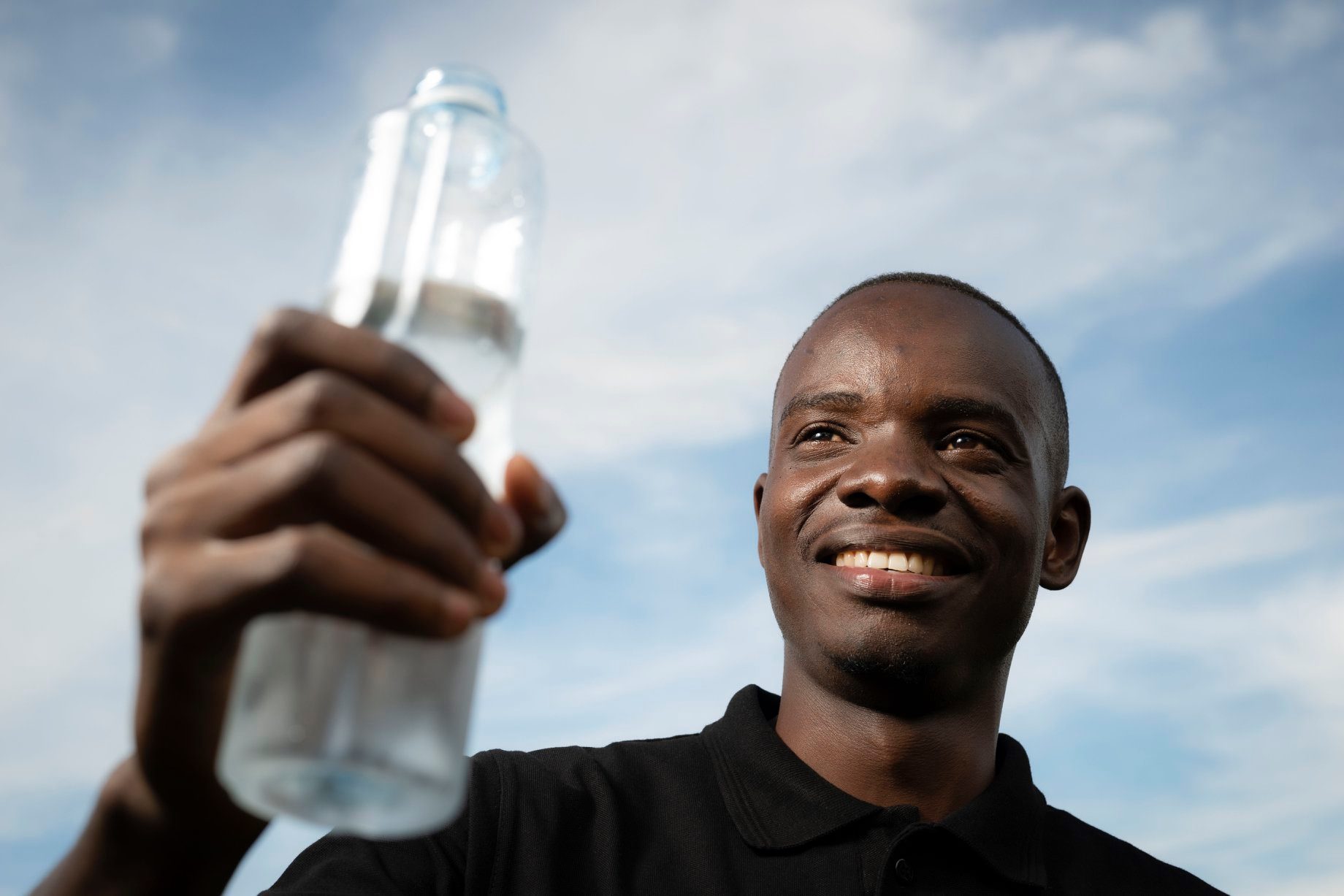
Timothy Kayondo, an industrial chemist graduate from Makerere University, examined how quickly the chlorine in Kampala’s public water supply decays between the reservoirs and residents’ taps. Chlorine, added to purify water, disappears by the time water flows into a home. This finding spurred the serial innovator on to devise a system that would ensure public facilities like schools and clinics would have clean drinking water. Source: Facebook/AfricaPrize
Eco Water Purifier Is portable, affordable and made partly from waste
The Eco Water Purifier is a water filter made from food waste and other trash. Running off solar panels, the system is ideal for rural schools and clinics.
Timothy Kayondo, an industrial chemist graduate from Makerere University, examined how quickly the chlorine in Kampala’s public water supply decays between the reservoirs and residents’ taps. Chlorine, added to purify water, disappears by the time water flows into a home. This finding spurred the serial innovator on to devise a system that would ensure public facilities like schools and clinics would have clean drinking water.
Cattle bones, cassava peels and other waste, which he buys from farmers across the country, are cleaned, fired in a vacuum-sealed furnace, soaked in an acidic solution, washed in distilled water, and then crushed into activated carbon.
Water is brought to the purifier from tanks or surface water by a solar pump, run through a sand filter, then the carbon filter, and finally through a UV light (also run by the solar panels). The whole system fits into a portable box about the size of a large suitcase, easy to carry and secured against theft. An internal battery stores energy from the solar panel. The system can purify 300 litres of water an hour.
Kayondo and his team are also planning to develop software to monitor the system in order to maintain it.
Source: Royal Academy of Engineering
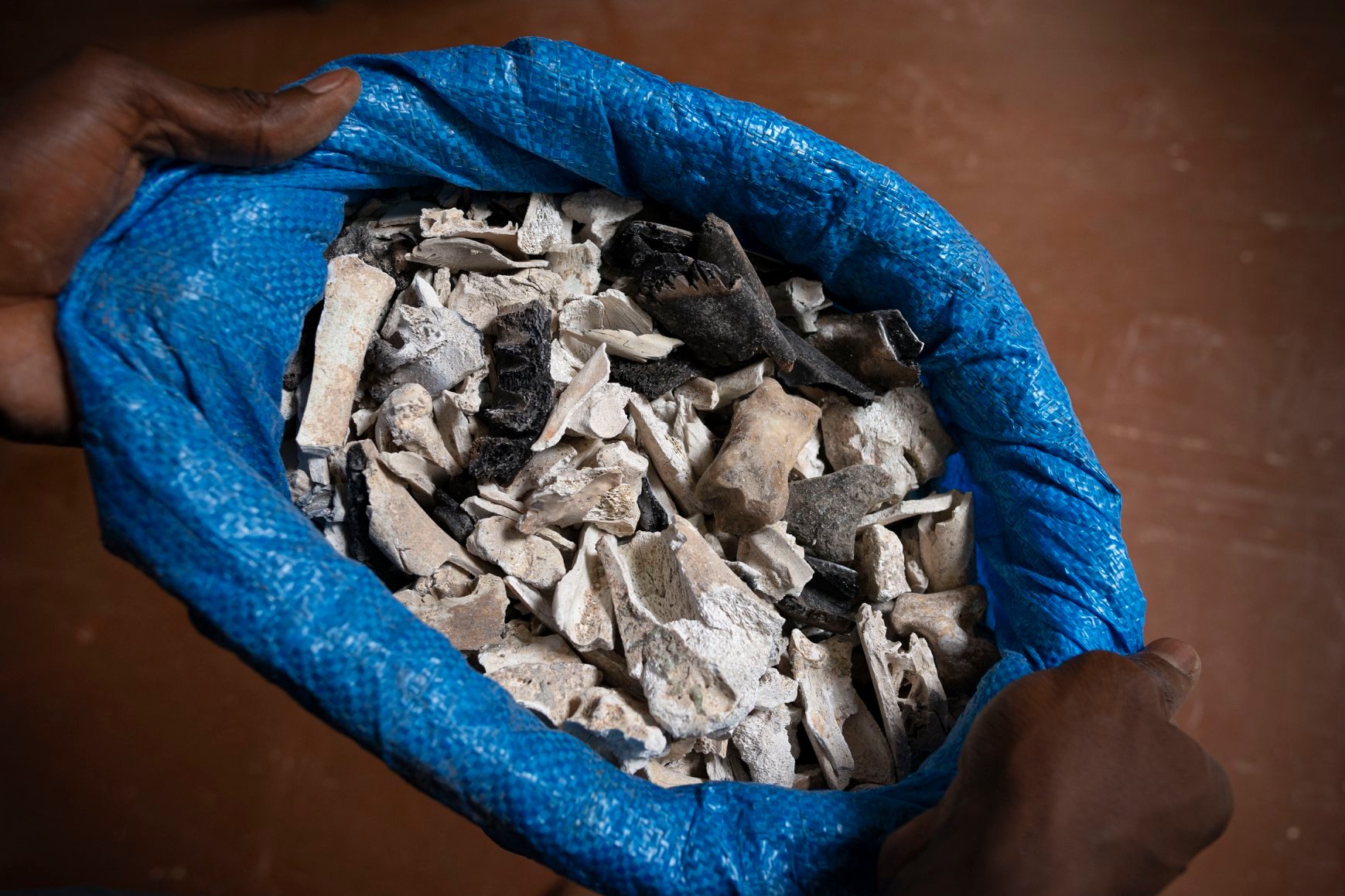
The Eco Water Purifier is a water filter made from food waste and other trash and runs on solar panels. Cattle bones, cassava peels and other waste, which he buys from farmers across the country, are cleaned, fired in a vacuum-sealed furnace, soaked in an acidic solution, washed in distilled water, and then crushed into activated carbon. Source: Facebook/AfricaPrize
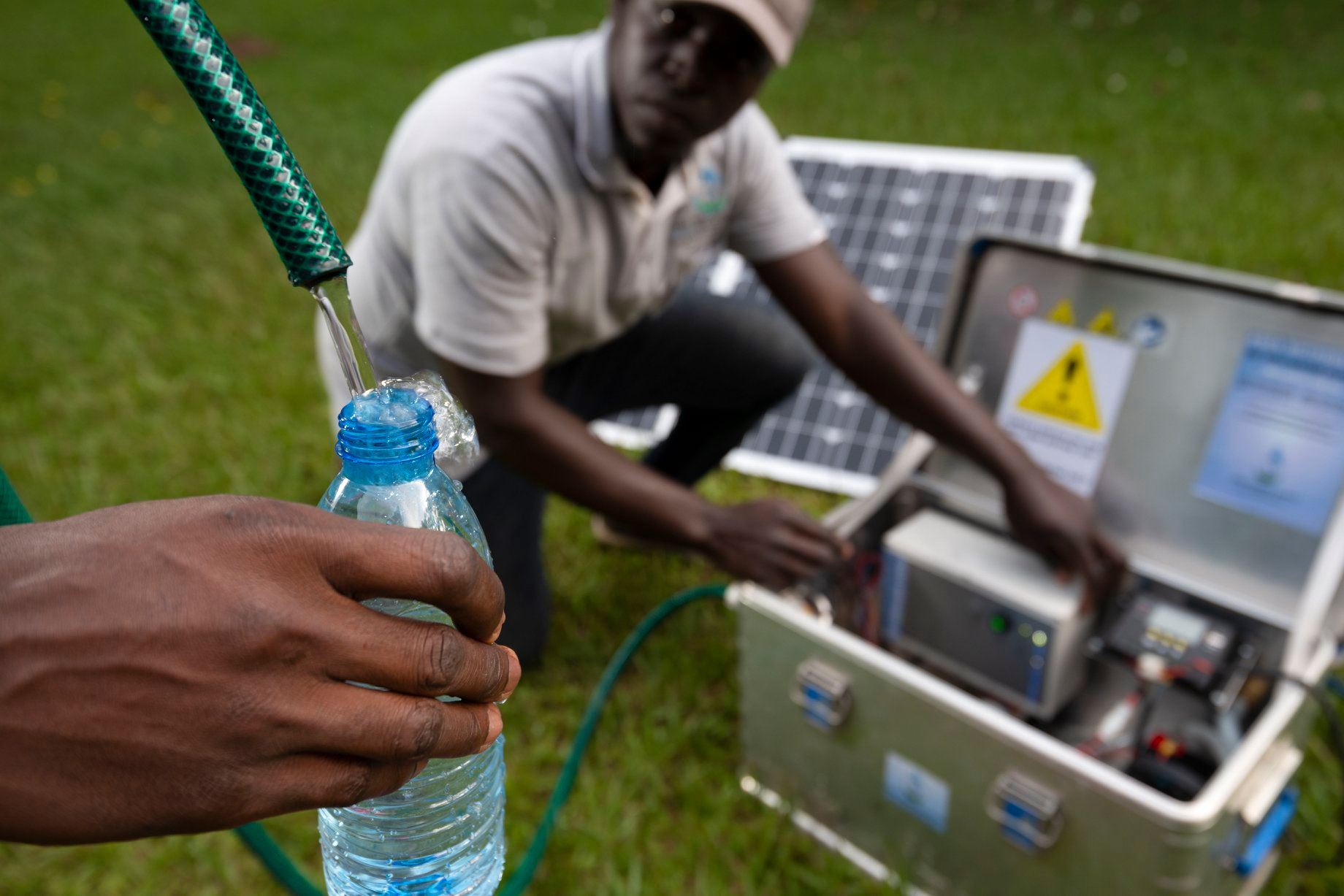
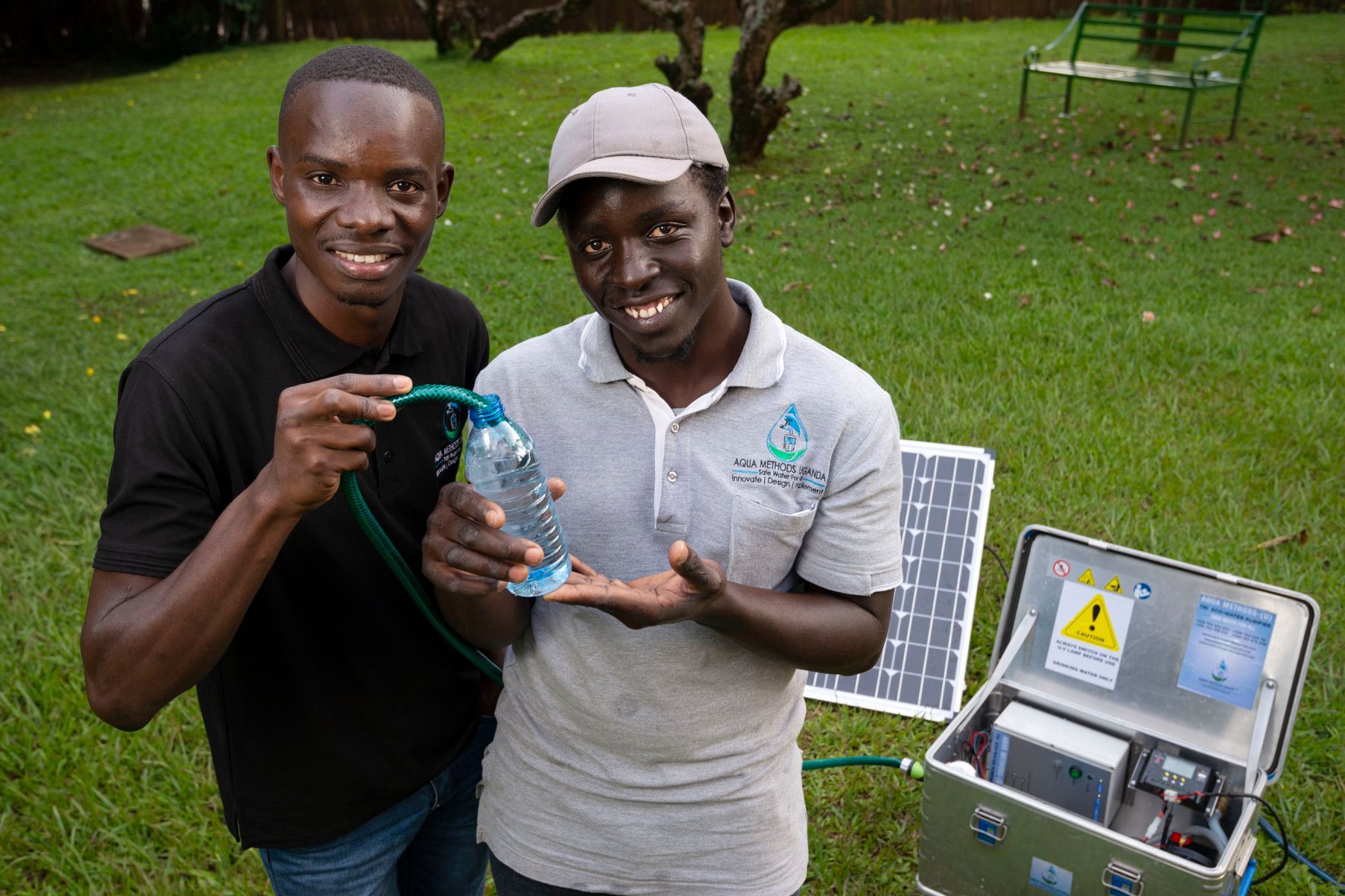
Timothy Kayondo won Africa Prize 2021 Alumni Grant
In 2021, Global-NAMRIP member Timothy Kayondo was awarded £15,000 ($19,700) from the Royal Academy of Engineering under its Africa Prize for Engineering Innovation programme. The scheme supports ambitious African innovators develop scalable engineering solutions to local challenges.
Timothy’s company ‘Aqua Methods Uganda’ developed the Eco mobile water purifier producing clean water using readily available technology and agricultural waste for the carbon filters. The devices are currently implemented in health centre and refugee camps within remote areas of Uganda.
This latest award follows on from an eight-month package of support Timothy received as one of the 2020 Africa Prize for Engineering short list. It will help him implement the strategies developed during this time including expanding distribution to different regions of Uganda, introducing complementary products and reducing the cost of producing the purifier.
NAMRIP Chair Professor Timothy Leighton said “I am delighted and proud to see Timothy have continued success securing additional funding from the Royal Academy of Engineering, enabling his team at Aqua Methods Uganda to progress their invaluable work providing safe drinking water within rural Uganda.”
Professor Leighton met Timothy at Global-NAMRIP’s conference in Uganda in March 2019 where Timothy demonstrated his water purification system. This began Global-NAMRIP’s mentorship and sponsorship of the team for the Africa Prize.
From their workshop in Kampala the team are currently producing about 10 units a month. These will be transported to schools as soon as the government lift the lockdown restrictions due to the Coronavirus pandemic and schools are able to reopen. The team have also successful introduced a system of recruiting graduate trainees from different universities and institutions, to support on site training during the installation process.
Source: Southampton.ac.uk
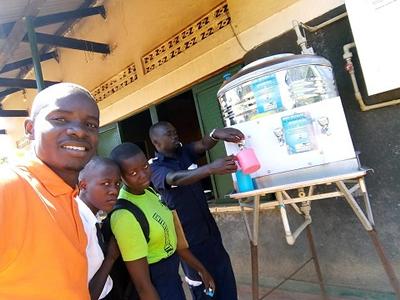
Mannze Secondary School, in Central region of Uganda. Source: Southampton.ac.uk
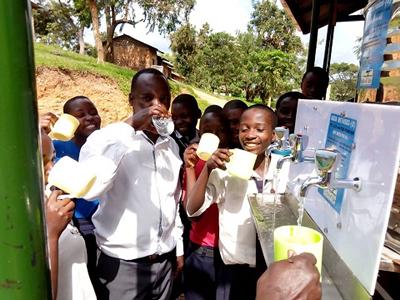
This article was first published on BrightVibes on 7 March 2022.

